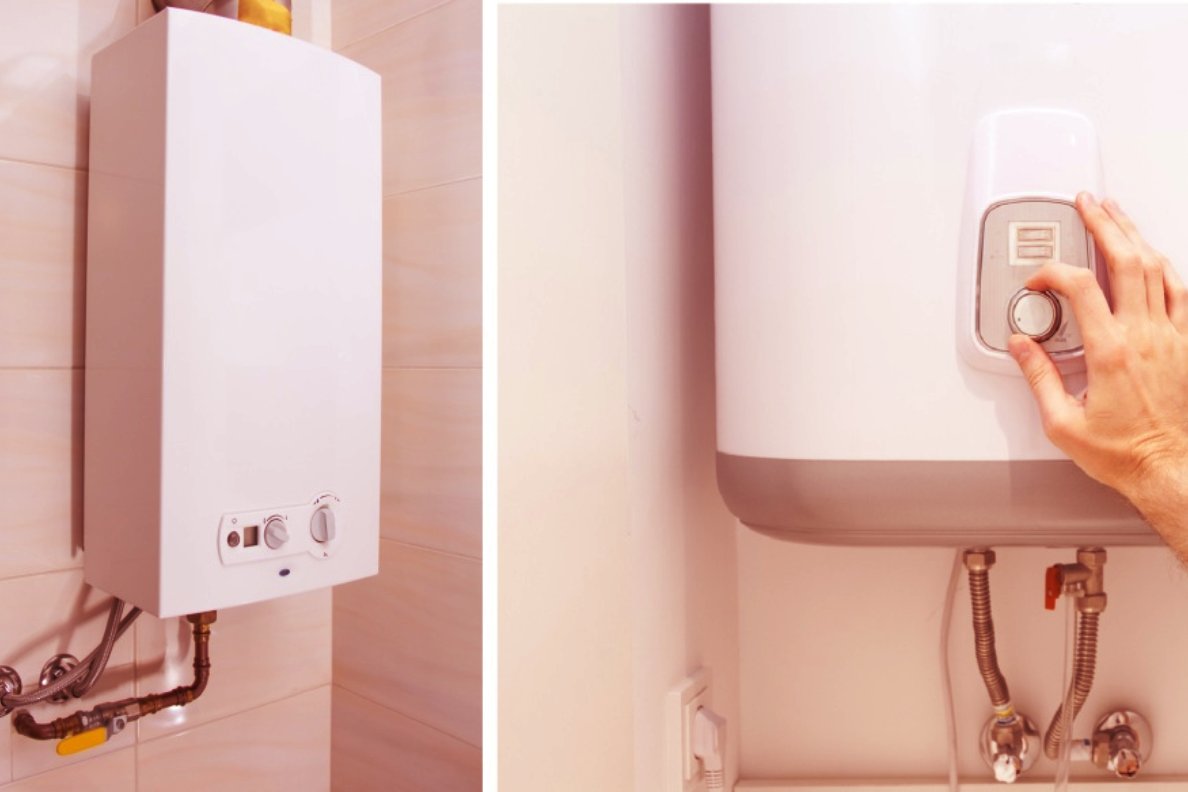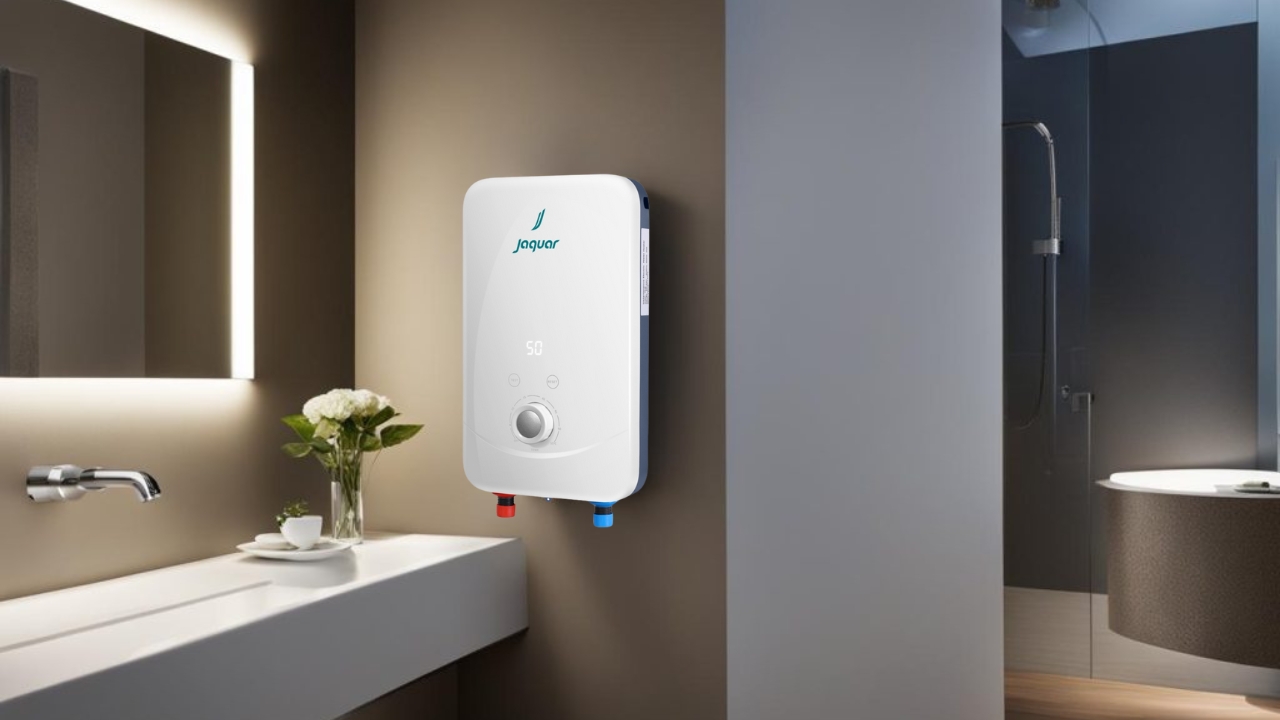Do you find yourself looking for facts on 5 Benefits of Tankless Water Heaters?

In a globe where convenience and effectiveness reign supreme, it's no surprise that homeowners are continuously in search of smarter ways to handle their home's power intake and comfort. One innovation that has continuously acquired popularity is the tankless water heater. Yet exactly what makes these systems attract attention from the traditional tank-based versions a lot of us matured with? Allow's dive in and discover the advantages of tankless hot water heater, assisting you choose if it's time to make the switch in your home.
Intro
Image this: you enter the shower after a long day, anticipating a soothing waterfall of hot water, just to be welcomed by icy beads since the last individual used it all up. Sound acquainted? Typical hot water heater store a fixed quantity of hot water, indicating you go to the mercy of that container's supply. Tankless systems, on the other hand, heat water as needed. Say goodbye to going out mid-shower, no more wrestling with routines simply to guarantee warm water is available.
Comprehending Tankless Water Heaters
What Are Tankless Water Heaters?
Tankless water heaters, occasionally referred to as on-demand or instantaneous hot water heater, supply hot water only as it's required. As opposed to storing gallons of pre-heated water, these systems kick into activity the moment you activate the faucet. Water goes through a warmth exchanger, warming up in real-time, meaning you get an uninterrupted circulation of warm water without the need for a huge tank sitting idly by.
Exactly how Do They Differ from Conventional Solutions?
Standard heating systems hold a reservoir of hot water, utilizing energy to maintain that storage tank at a constant temperature. Tankless devices get rid of the standing supply, reducing squandered power and the bulky footprint of a big cylinder. Basically, you're upgrading from a "stockpile" mindset to a "made-to-order" technique.
Usual Types of Tankless Units
Tankless hot water heater generally can be found in two ranges: gas and electrical. Gas designs have a tendency to deliver higher flow rates, ideal for bigger households, while electrical designs usually offer smaller homes and are normally less complicated to set up. Additionally, some systems are designed for point-of-use (offering one fixture) while others can take care of the entire home's hot water needs.
Trick Advantages of Tankless Hot Water Heater
Energy Performance and Cost Financial Savings
Say goodbye to heating up a giant container's well worth of water and keeping it warm throughout the day. Tankless heaters decrease standby energy losses, which can decrease energy expenses. While the initial expense could be higher, the long-lasting financial savings commonly warrant the investment.
3. Space-Saving Design
If your home is short on storage, eliminating the bulky tank frees up beneficial space. Tankless devices are compact and can typically be mounted on wall surfaces, tucked away in corners, or mounted in tight energy storage rooms without gobbling up the entire room.
4. Longer Life-span
A properly maintained tankless hot water heater can outlast its tank-based cousin. Conventional tanks could last 10-15 years, while tankless designs can maintain downing along for two decades or even more, making them a solid investment gradually.
1. Endless Hot Water Supply
Ever needed to schedule showers so every person gets their reasonable share of warm water? With tankless, that ends up being a distant memory. As long as the heater's circulation ability isn't surpassed, you can take back-to-back showers without developing into a popsicle.
5. Improved Water Top Quality
Saving water in a storage tank can occasionally lead to sediment accumulation or a slightly "off" taste. With tankless systems, fresh water is heated on the spot, minimizing the chances of sediment build-up and potentially offering cleaner-tasting water.
Factors to consider Prior To Changing
Though the benefits are compelling, it's smart to think about a few aspects before fully committing.
Assessing Your Home's Water Usage Patterns
If your household at the same time utilizes multiple components with high warm water need, see to it the device's flow price fulfills your needs. Understanding your usage patterns helps you choose the right dimension and type of tankless heater.
Maintenance and Treatment Tips
Tankless systems are reasonably reduced upkeep, however they aren't set-it-and-forget-it home appliances.
Normal Cleansing and Descaling
Hard water minerals can accumulate in the warm exchanger, influencing performance. Routine descaling (typically advised every year) keeps the device running at peak performance.
Yearly Professional Assessments
A yearly checkup from a professional guarantees minor concerns are caught early. They'll assess the unit's efficiency, seek leakages, and assist preserve ideal efficiency.
Initial Investment Costs
Tankless heaters generally come with a greater ahead of time price. Between the unit itself and possible installation adjustments, the preliminary expense might give you sticker shock. Yet bear in mind to view it as a lasting financial investment.
Installation Needs
Depending upon your home's infrastructure, you may require additional electric capacity or gas line upgrades. Guarantee you comprehend the installment requirements and seek advice from a professional to prevent shocks.
Making Sure Appropriate Air Flow
For gas designs, correct air flow is vital to securely eliminate exhaust gases. Ensure venting systems are clean and properly set up to prevent any kind of prospective security risks.
Comparing Different Brands and Designs
Not all tankless water heaters are created equal.
Investigating Trustworthy Manufacturers
Seek reliable brands with a background of creating quality devices. A trustworthy maker typically provides better consumer support and longer service warranties.
Setup: Do It Yourself or Professional?
While some homeowners delight in tackling tasks themselves, tankless installation could not be the very best time to break out the tool kit.
Advantages and disadvantages of DIY Installment
A do it yourself set up could conserve money, yet it includes threats. Wrong installation can cause inadequacy or safety and security worries. If you come in handy and have experience, it may be viable-- but wage care.
Reading Evaluations and Customer Feedback
Individual testimonials and feedback from neighbors or close friends who have actually gone tankless can supply valuable insights. In some cases, real-life experiences can be more informing than advertising pamphlets.
When to Call an Expert Plumber
For many, calling a pro ensures everything's done correctly. A professional plumber understands regional codes, sizing requirements, and airing vent specifications, lowering the risk of problems.
Making the most of Performance
You've purchased a tankless device-- now optimize its effectiveness.
Optimal Temperature Level Setups
Most people establish their devices between 120-140 F. Readjusting the temperature level can boost comfort and financial savings. Experiment to discover a pleasant spot that doesn't lose power.
Coupling With Low-Flow Fixtures
Want to extend your device's capabilities? Think about mounting low-flow showerheads and taps. They minimize water use, permitting your tankless system to deliver a stable stream of hot water without straining.
Environmental Influence
Tankless water heaters align with greener living objectives.
Lowered Carbon Impact
By utilizing less energy and only home heating water as required, tankless systems can reduce your home's carbon footprint, minimizing your ecological impact.
Saving Natural Resources
Less energy usage and less wasted hot water translate into fewer natural resources being used, an ecological win-win.
Who Benefits Many from Tankless Heaters?
The charm of tankless heating systems is that they can suit a selection of households.
Huge Families vs. Single Passengers
Huge family members might enjoy the limitless warm water supply, while solitary residents value the power cost savings from not heating an entire container for just someone's early morning shower.
Home Owners with Minimal Area
If your home is short on square video footage, losing the cumbersome storage tank frees up area for various other fundamentals-- or maybe simply much more elbow room.
Eco-Conscious Consumers
Going tankless aligns with environmentally friendly worths, ensuring you're not squandering energy or sources.
Future Trends in Tankless Water Heaters
The world of home appliances is ever-evolving, and tankless hot water heater are no exception.
Innovations in Modern technology
R&D is frequently improving warm exchangers, making devices more effective and long lasting. Future versions may be also quieter, extra compact, and better suited for varying climates.
Smart Home Assimilation
Picture changing your water heater's temperature through an app or receiving maintenance informs on your phone. As wise home tech breakthroughs, we'll see even more connectivity and benefit.
Conclusion
Selecting a tankless water heater is more than just updating your home's hot water system; it's purchasing long-term convenience, power efficiency, and a greener way of life. By considering your home's water usage, bearing in mind installment needs, and committing to regular upkeep, you can delight in a stable stream of warm water without the baggage of a large container. As innovation develops, you can look forward to even smarter, extra efficient tankless options that not just make your life easier yet additionally benefit the planet.
Why You Should Consider a Tankless Water Heater for Your Home
Energy Efficiency and Cost Savings
Tankless water heaters, also known as on-demand water heaters, heat water only when needed. This means they don't waste energy keeping a tank of water hot constantly. This efficiency translates into substantial cost savings on your monthly energy bills.
Endless Hot Water Supply
One of the significant advantages of tankless water heaters is their ability to provide a continuous supply of hot water. Traditional tank water heaters have a limited capacity and can run out of hot water, especially during peak usage times. In contrast, tankless water heaters can provide an endless stream of hot water, making them ideal for larger families or homes with high water usage.
Space-Saving Design
Tankless water heaters are compact and take up significantly less space compared to traditional tank heaters. They can be installed on walls, under cabinets, or even outside, freeing up valuable space in your home. This makes tankless water heaters a great option for smaller homes or properties with limited space for a traditional water heater.
Longer Lifespan and Lower Maintenance
Tankless water heaters typically have a longer lifespan compared to traditional tank heaters. They can last up to 20 years or more with proper maintenance. Additionally, tankless systems are designed with replaceable parts, which can extend their lifespan further and reduce long-term maintenance costs.
Environmentally Friendly
Reducing energy consumption not only saves you money but also benefits the environment. Tankless water heaters contribute to a smaller carbon footprint by using less energy to heat water. Their energy efficiency and ability to minimize standby heat loss make them an eco-friendly choice for environmentally conscious homeowners.
Customized Temperature Control
Tankless water heaters offer precise temperature control, allowing you to set the desired temperature to meet your specific needs. This level of customization ensures you always have water at the perfect temperature for your comfort and usage requirements.
https://beantownservices.com/blog/consider-tankless-water-heater-for-your-home

Hopefully you enjoyed our part on Unveiling the Hot Trend: The Benefits of Tankless Water. Thank you for taking time to read our content. Appreciated our blog entry? Please share it. Help another person find it. Thanks for being here. Come back soon.
Check Us Out